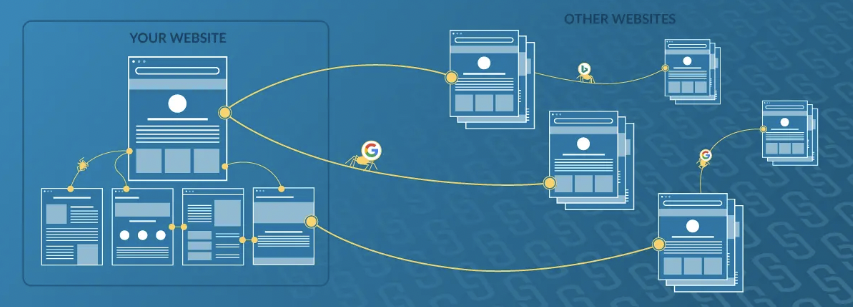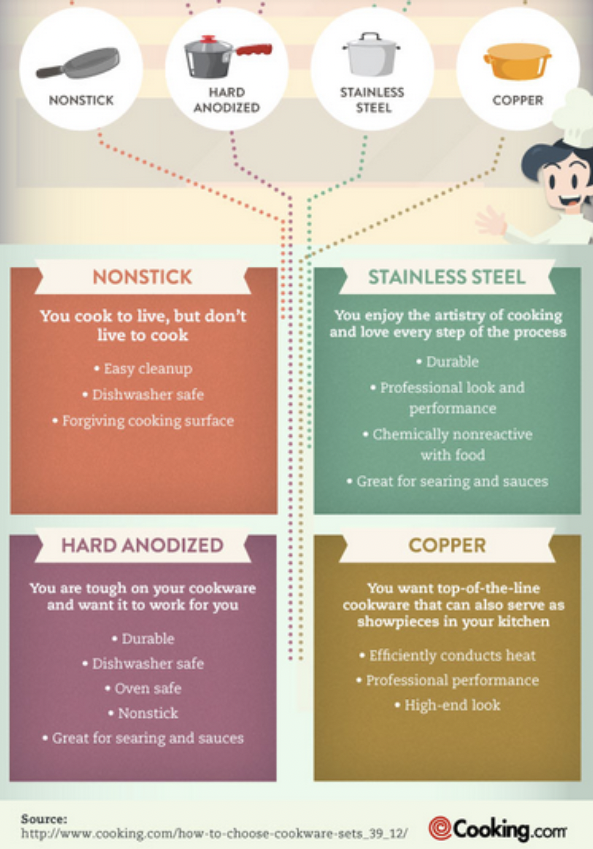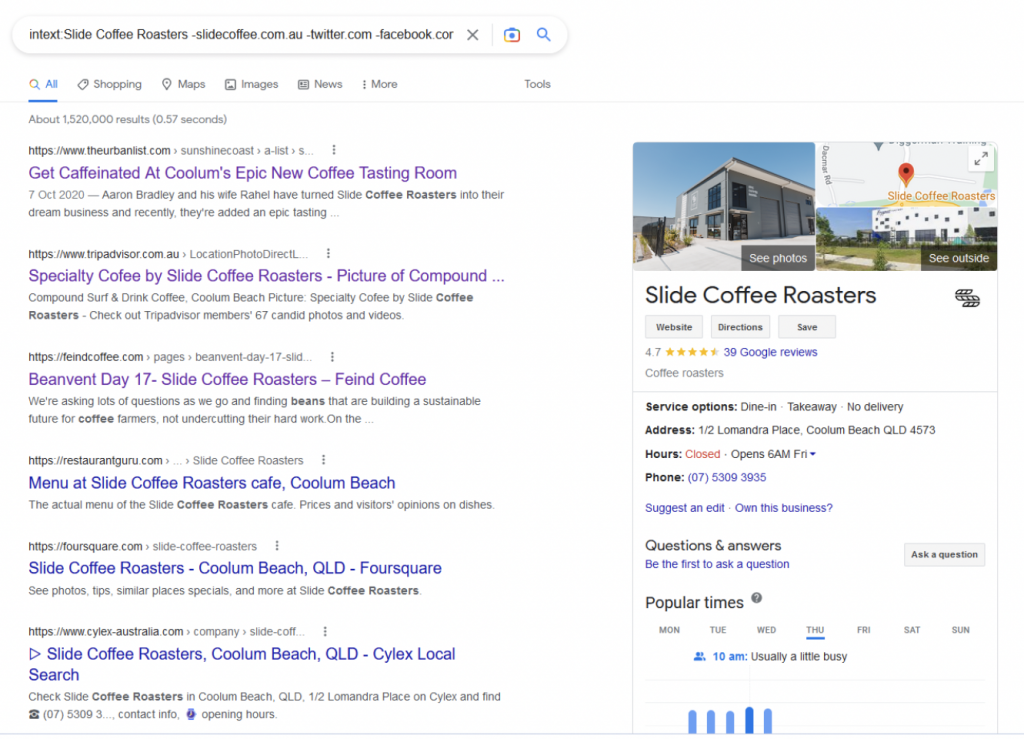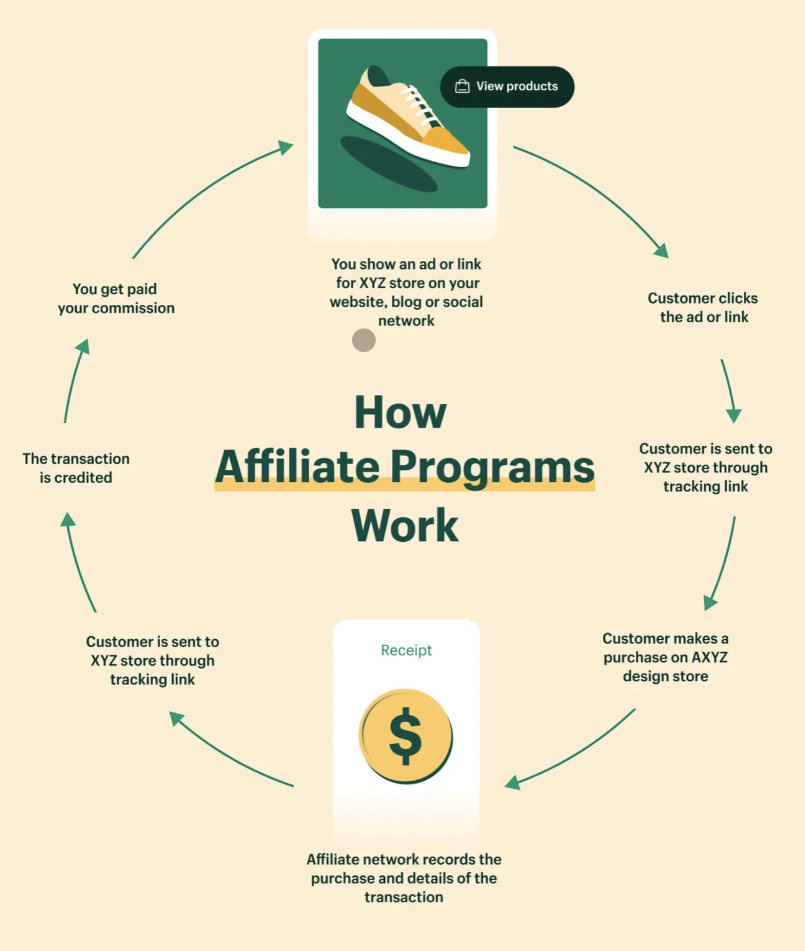A critical component of your eCommerce SEO strategy is link building.
Everyone talks about it…
After all… It’s been one of the core ranking factors of Google’s algorithm since the inception of the search engine.
And since then, “links” has more or less become the buzzword in the SEO world.
Now, we’re not going to go down the rabbit hole of backlinks. Keep reading to get a quick insight into link building, but the main goal of this guide is to give you seven actionable link building strategies that we use every day to get results for clients.
Let’s dive straight in and talk eCommerce Link Building to get your site ranked fast and drive more organic sales!
What is link building?
Link building is the process of acquiring links from other websites to your own.
Websites with high-quality backlinks earn higher rankings from search engines.
A backlink or inbound link is created when a website links to your website. For example, if a surfboard website links to a blog post comparing the best surfboards available in the market, the blog post receives a backlink from the surfboard website.

This signals to Google that your content is valuable and passes link juice your way. Not all links are valuable, though. A website with higher authority will provide more value to your website than a low-ranking website.
For example, a link from websites like Hubspot, Forbes or Ahrefs will be more valuable than an unknown website.
Why is link building important?
Link building is a critical part of website optimization. It helps search engines discover new websites and helps a website rank better.
Webmasters can improve the rank of their sites by creating high-quality sites that users want to use and share. Google's automated ranking systems are designed to present helpful, reliable information that's primarily created to benefit people, not to gain search engine rankings, in the top Search results.”
External links are one of the top ranking factors for Google, alongside content, page experience, on-page optimisation and mobile-first.
Full Breakdown & Tips Of 7 eCommerce Link Building Strategies
If you have managed to get here so far, you know link building is hard but worthwhile. It is a long game, and you need to keep trying different strategies to build links to your eCommerce website- homepage, info page, product pages or category pages.
Keep reading to discover the tactics we have used successfully for our clients. These tips are proven and will definitely help you improve rankings, get more sales and more repeat customers.
1. Guest Posts
This is simple - you reach out to website owners with a pitch to update their existing blog posts. Use this our eCommerce Blogging Guide to come up with blog pitch ideas.
How to do it?
- Search for:
- keyword “guest post”
- Keyword “submit a guest post”
- Replace the keyword with a keyword relevant to your business.
- Research the blogs- their content, target audience
- Pitch a guest post idea
- Submit a guest post - include links, images and CTA
Pitch best practices
When you are pitching a guest blog post, make sure you have:
- Read the guidelines created by the blog owner
- Personalise your email without making it too cheesy and over the top. It can be a turn-off for the blog owner. Try and add value rather than making it about your business or services.
- Thank the owner for the time and be polite
- Include your details, blogging experience, and blog posts you have published elsewhere
- Pitch a few content ideas so the blog owner can choose from a few
- If you don’t hear back from them, send a follow-up email
- Track your guest post efforts in a spreadsheet
Need some inspiration to write a pitch email?
Here are a few examples of sample guest blogging email template ideas: https://www.liveagent.com/templates/guest-blogging/
If you use Ahrefs, you can use the Content Explorer tool to find guest blogging sites and influencers in your niche.
Watch this video to learn more:
2. Create linkable content
It is extremely important to create helpful, reliable and people-first content.
Evaluate your content to see if it is relevant to the user. Does it answer their questions? Does it provide insightful knowledge? Can you improve existing online resources to provide value to the users?
Keeping that in mind, offer resources and guides related to your products to the users. It builds your authority as a thought leader. The quality of your content can give it the potential to go viral and be used by other websites.
Your content could include blogs, infographics, how-to-guides, listicles, reports, white papers, and FAQs.
For example, let’s say you sell cookware online.
An infographic like the one shown below can make decision-making easier for a customer struggling to choose between different types of cookware.

You can go one step ahead with this by creating an FAQ section and answering common questions like:
- Which cookware is the healthiest to use?
- Which is the best cookware that can last a lifetime?
- Advantages and disadvantages of stainless steel vs iron
- Is non-stick or stainless steel better?
- Difference between PFOA and Teflon
- Why BPA, PTFE, and PFOA Matter
The list is endless…
You can think of a variety of questions to answer related to this topic.
Maybe even create an ebook.
This content is aimed to solve a problem; it can be shared on social media, website forums and blogs.
3. Unlinked brand mentions
Unlinked mentions are mentions of your company name, products, or services online without any links back to your site. It is a missed opportunity, as you could be earning a valuable link.
They are also called fresh mentions or brand mentions. This means your brand equity is growing, but you are not getting any link juice.
How to do it?
The hard way - Advanced Google Query
Use this query to find an unlinked mention
intext: “keyword” -”website name”
Use - in front of a word you want to exclude.
For example, here I am trying to search unlinked brand mentions for a coffee shop based on the Sunshine Coast. And I have excluded Twitter, Facebook, Pinterest, Youtube and Instagram to exclude their social pages.
intext: Slide Coffee Roasters -slidecoffee.com.au -twitter.com -facebook.com -pinterest.com -youtube.com -instagram.com

As you can see, here are 1,520,000 results; some could be relevant while others may not be.
To find unlinked brand mentions, you will need heaps of time and patience.
If you are going the difficult route, you will need to click on those individual links, find the author's name, reach out to the author and ask for a link!
Note: If the mention is negative, don’t ask for a link!
The easy way is to use a tool like Buzzsumo, or Ahrefs to find unlinked brand mentions.
If you are using Ahrefs, here’s a post that might help you monitor unlinked mentions.
https://ahrefs.com/blog/unlinked-mentions/
4. Coupons and Promo Codes
Using coupon codes and promo codes can be a great way to get backlinks.
How to do this:
- Find websites that allow you to submit coupon codes
- Your search query could be - “submit coupon code”
- On Google, use the query:
“Keyword” inurl:submit coupon code
- Select a few websites from the search results and add your coupon code/promo code on these sites
Bonus tip:
Websites like Honey, Oz Bargain and Shopper allow users to add coupon codes.
You can even put deals on Groupon to build links.
Additional Bonus Tips:
- Create content related to discounts and promotions
- Use a dedicated landing page to include ongoing discounts and promos
- You can go one step further by including promo codes for related products in your niche and reaching out to the website owners for a link to your products
5. Partnership with influencers
Another way to build traction is by partnering with influencers to help your brand scale.
You could reach out to YouTubers, Podcast hosts, bloggers or companies working in a similar industry to build brand awareness. It is a great way to boost your engagement and conversions with the help of people with a massive social following!
The Affiliate Marketing Angle To Reach Influencers
You might have heard of affiliate marketing tons of times! You can use this tactic to partner with bloggers and influencers to build brand awareness and increase conversions.

How to do this?
- Find bloggers, influencers, YouTubers or podcast hosts in your niche ( they could even be your existing customers). You could use a simple Google search to find people working in your industry.
- Find websites with a similar audience, BUT they must not be in competition with you. As you can even partner with these sites, they might be willing to promote your products in exchange for a promotion on your website or compensation for successful referrals.
- Create a list of potential affiliates and check out their social media pages, blogs, etc.
- Reach out to people you have included in your list. Remember to make a connection and show them the value of partnering with you.
- Attract affiliate partners with a valuable commission rate that is sustainable for your business.
- Create a landing page with your affiliate program - include the benefits you offer, how they can join the program and the terms & conditions of the program.
- Optimise the landing page so it can be discovered easily on search engines.
- Promote it on your social media, utilise paid ads or include the links on your website menu, newsletters, emails and so on!
6. Giveaways
Send your products to influencers for free in exchange for a review.
You already know the power of influencers. But how do you capitalise on this?
It's pretty simple, actually.
- Find influencers with a reasonable followers.
- Send them a short email encouraging them to try out your product.
- You may not have to try hard to get a review as the influencer is most likely to create a video or a blog post talking about your product.
And that’s it… If you reach out to even 10 people and give away your product for free, you get 10 quality backlinks!
7. Podcasts
Podcasts are a great way to promote your business. They are informative and educational for listeners. And they can add another dimension to your marketing strategy.
They are immensely popular - it’s easy to enter this space, and the material can be used on different mediums (audio and video). It can be a great tool to increase your website's authority and visibility.
How to do this?
- Guest appearance on a podcast - it is a great way to talk about your entrepreneurship journey or content relevant to your industry. You are not only creating interest in your brand, but it can be a great way to earn links.
- Sponsor a podcast. Podcasters generally have show notes in which they mention their sponsors or they talk about their sponsors in the episodes. If your budget allows, you could reach out to podcasters and sponsor a few episodes or advertise with them.
7 things you need to know about link-building
So now that you know a bit more about link-building. Here’s our disclaimer - it's not easy and without the right strategy, it might feel like you're beating your head against a wall trying to find opportunities to get links.
There are no shortcuts or hacks you can use to acquire high-quality backlinks. It is all about strategy, execution and creative thinking. It may take months or years to get authoritative backlinks.
- Do not buy links. It is a spammy technique and your website can get penalised.
- Don’t get links just to your homepage - use blog pages, product pages, category pages or news pages. If only one page receives backlinks, it may look spammy and unnatural.'
- Don’t recycle the same content on different websites to get backlinks.
- Those $5 backlinks are a waste of money…. If link building was achievable with $5, everyone would have websites with high DA.
- Avoid backlinks from websites with low reputations, low quality and irrelevant niches.
- Don’t rule out the importance of anchor texts. Make sure you are using the right keywords in your anchor text.
- Avoid overusing words like “click here” or “read more” as they may not help your ranking.
- Don’t use the same anchor text repeatedly.
Key Takeaways
So, there you go.
Here are some great strategies to improve link-building for your online store.
Outreach is one of the best ways to build links.
Remember that when you are reaching out to people, you are reaching out to a real person.
They will be getting tons of emails, and they have hundreds of things to do other than reading your email and just creating a link for you. Plus, they don’t owe you anything.
Show them you are genuine, you are not a spammer and tell them why they should care about you.
So whether you are trying to publish guest posts, reaching out to influencers or even creating content, think of the benefit you are creating and the value you are bringing to the table.
With eCommerce SEO, the sky is really the limit.
You can create linkbait products based on popular memes, holiday seasons or pop-culture references.
If you have cool products like the ones listed on This is why I’m broke, it is another great strategy to drum up some visibility.
The caveat with link building is that it takes time and effort.
Rome wasn’t built in a day and getting backlinks does too!
So, where to from here?
If you've read this far...
Well done!
You're obviously serious about the growth of your eCommerce store.
Usually, people who get here are faced with two choices.
- Start working on this stuff themselves.
- Get an agency to help them.
Both options will work; the first one takes a lot of time, usually a steep learning curve and a lot of trial and error along the way.
The 2nd way has been the option for loads of eCommerce business owners, and it's actually what we at Websites That Sell specialise in.
So if you'd like help putting a full eCommerce link building strategy together, you can either learn more about our eCommerce services here or get in touch with us.
Either way, we hope you got a tonne of value from this guide and it's a great kickstart to your eCommerce link building journey.
ADDITIONAL LEARNING:
Don't know what keywords are? Read our full eCommerce Keyword Guide
What's the best platform to choose for eCommerce SEO?

